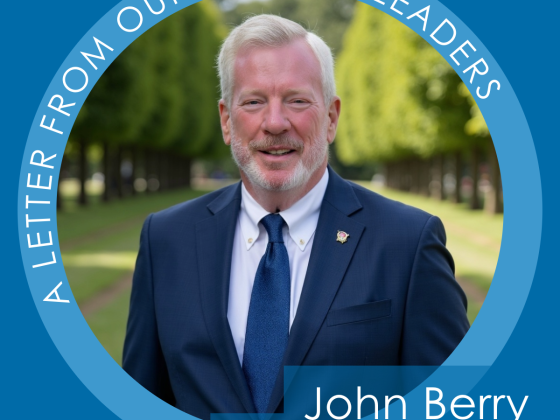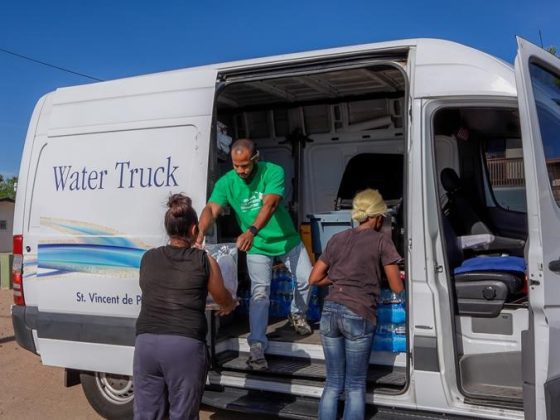Is it possible to be too kind?
A group of volunteers comes in every Tuesday to pack food boxes for the pantry. They are all such good friends that they spend a lot of time catching up, sharing jokes and stories. The other volunteers need to pick up the slack for them.
A Society store hires returning citizens in its processing areas. They produce only half of the units that the other employees generate daily, even after several months on the job. However, they are paid the same wage.
Sometimes it feels like the Society has conflicting objectives. We want to be friendly; in fact, Friendship is one of the Society’s three Essential Elements. Yet such friendship can reduce productivity toward another Essential Element, that of Service. We want to help those coming out of prison by giving them employment opportunities. However, if these employees don’t perform at the same levels of others in our employ, coworkers need to fill in around them to meet the business needs. They may feel unfairly treated, as they do so much more work for the same pay.
As Council and Conference leaders, we must balance kindness and friendship with the Society’s need to serve others economically and productively. We want to be liked, but we are also responsible for the “business” of the Society as faithful stewards of dollars, volunteer time and other resources.
This would be easier to see if it was just about dollars. We would not tolerate a volunteer or employee snacking on food meant for the food pantry, or taking it home. Most of our stores have a zero-tolerance policy for the theft of clothing or other goods meant for sale. Fortunately such cases are rare, but across the country we have had employees and volunteer leaders arrested for embezzlement of funds. We may feel compassion for those who have stolen from the Society, but we must side on the greater good of the community and its trust in the Society to keep high ethical standards and to manage their donations effectively.
It is more difficult to manage expectations for volunteers. We so appreciate anyone giving us their time that we excuse the wasting of some of that time. Yes, friendship is critical to what we do, and we want any volunteer experience to be enjoyable. This, though, has its limits. When others need to cover for the goof-offs, I mean less productive volunteers, and the tasks aren’t getting done despite what seems to be a reasonable number of hands applied to them, leaders need to step in. Otherwise, we risk losing our best volunteers when they feel exploited for the sake of others. They may quietly fade away, so this can be challenging to see right before our eyes.
Employees, such as in that store example above, are usually less quiet! They will complain about why they are paid the same as another but do so much more work, and then they leave. Or they slow down to another staffer’s activity level to achieve wage parity. Either response hurts the business. Thus, our attempt at caring, compassionate employment for some can result in the total business not performing well, endangering all of the workers’ jobs as well as our ability to serve the community.
What to do? First, we need to listen. We don’t want volunteers and employees snitching on others, but we can listen to the quiet complaining and then try to improve the situation. This improvement may entail coaching, performance reviews, transferring some people to where they can be more effective, and breaking up the friendship cliques to more productive working groups, all for the Society’s greater good.
We don’t help people by excusing bad behaviors. In fact, we make it worse for them eventually. Most of us learned this either as children or parents. When it comes to employees and especially volunteers, however, we sometimes act with our Vincentian hearts more than with our heads. Our leaders have at least two tools to help with this issue: other leaders and discernment. We can check with others we trust to ask if they see what we see. We then take in all the input and in most cases (those not endangering someone) we can develop a thoughtful, compassionate set of solutions.
As people, Vincentians and leaders, we all seek to be liked by others. The potential cost of leadership is risking such love by doing the necessary to protect the organization we lead. When we lead such a good organization as the Society of St. Vincent de Paul, upon which so many people in need rely, we should not be slow to seek productivity improvements or conservation of precious resources. After all, we were elected by our fellow members with guidance from the Holy Spirit to do the right thing.
Yours in Christ,
Dave Barringer
CEO



We are not here for ourselves. We are here to serve others. We are doing the work of the Lord, in the name of the Lord. We are here to help those that need help the most. For those that put themselves before others are not doing what it is we are meant to do as volunteers and as Vincentians. This is a sad predicament, but for this being spoken about how many other things are not being spoken about? This is where as family and friends, brothers and sisters in the Lord, we must stop and realize why we are here and what our purpose for being here is, it is to serve, and to put the Lord first in our lives.
If we cannot do that, we are the same as the rest of the secular world, making their own rules doing what they want to do, not knowing the difference between right and wrong. There are rules, rules that we follow doing what is right. We are not here to make up our rules as we go that benefit us over others putting ourselves first before others…
There is forgiveness, and there is healing, but there’s also consequences. I will pray not to punish those that have done wrong, but for those who are in charge to do what is right.
God bless you all my brothers and sisters through Christ.